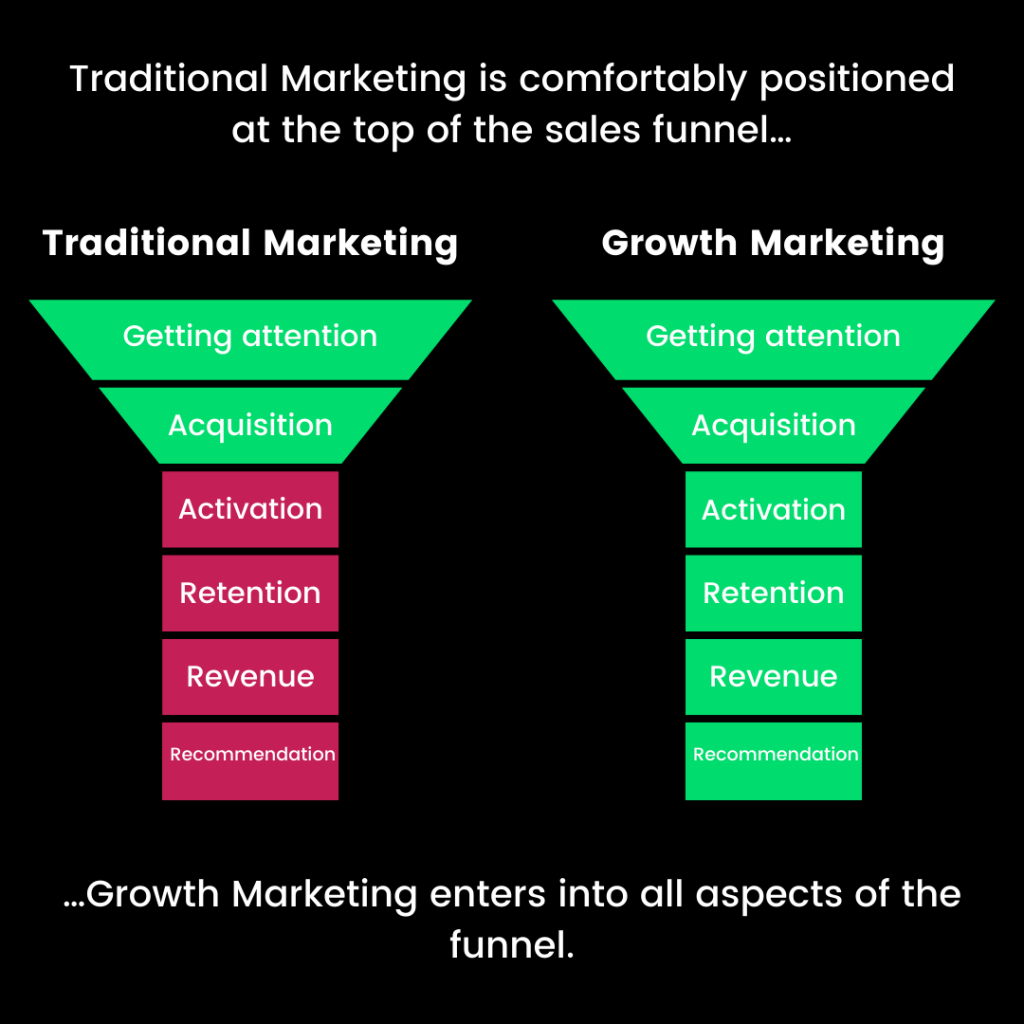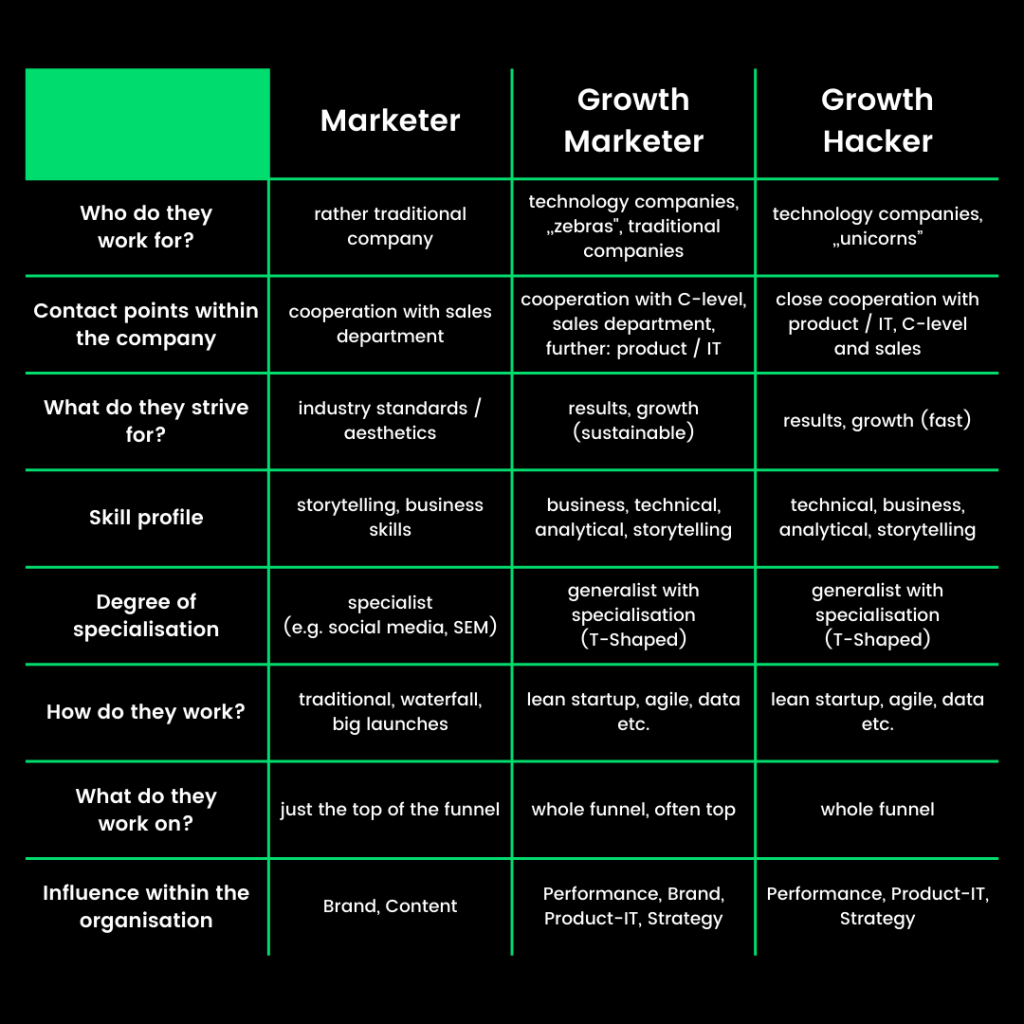Growth Marketing, sometimes called Growth Hacking – sounds out of the box, exotic. However, under these slogans lies a new approach to marketing. Marketing, that instead of putting in the first place colourful billboards, catchy slogans or overblown campaigns, focuses on results, data, and... on people.
Why should a company have a Growth Marketer on board? And is it right that Growth Hacking is equated with Growth Marketing?
It's 2009 and Sean Ellis, an experienced entrepreneur and marketer, works at Dropbox. He's Head of Growth and his main job is to support the CEO – Drew Houston – in building a thriving business based on hard data, effective customer acquisition and growing user engagement. His efforts are yielding astounding results. Dropbox becomes the fastest growing SaaS company in history, reaching $1 billion in annual revenue.

Sean has overseen the implementation of the growth process at several technology companies (Eventbrite, Lookout, Webs). He is credited with coining the term „Growth Hacking” in 2010 – an approach to marketing based on testing solutions and collecting data. What helped spread this phenomenon around the world was „Growth Hacker Marketing”, published in 2013 – the first book on Growth Marketing by American entrepreneur and writer – Ryan Holiday.
What exactly is the phenomenon of a marketing „religion” that is now more than a decade old?
Growth Marketing is a philosophy of continuous business improvement. A methodology for attracting, engaging and retaining customers, and doing it better and better. It is the perfect tool for companies with great products (already validated by customers in a market), but not necessarily fully developed.
This does not mean that Growth has no right to exist in large corporations. There, Growth Marketing is especially applicable when they release their own startups, new products, or simply new projects.
Everyone can benefit from implementing the Growth strategy in their company. What is particularly attractive to smaller companies is the lower cost of marketing activities while maximizing results. That is, in other words, „maximizing efficiency” – maximum effect from the (modest) resources at hand.
Although both approaches are about attracting customers, there are specific differences between Growth Marketing and traditional marketing:
Traditional marketing is based on intuition. Growth is based on hard data and analysis of the results achieved.

Where does Growth Hacking fit into this distinction? Although often treated as synonymous with Growth Marketing, Growth Hacking focuses on other areas of working with a product. As it is closer to the product, it is therefore more technical. As a result, it is usually used in technology companies, while Growth Marketing is applied more widely across organizations.
A Growth Hacker is primarily an engineer (software / data engineer), often equalling the business and sales knowledge of a marketer. The bad reputation of Growth Hacking in some people comes from the belief that in this methodology every trick, unethical play or questionable idea is worth using as long as it brings results and fast growth, which is – obviously – not always a case.
In practice, however, Growth Hackers focus mainly on results and the masterful use of tools of performance marketing and product development. Growth Marketers, on the other hand, are more inclined to take a holistic view and strive for sustainable business growth.
Things that are common to both Growth Marketer and Growth Hacker include:

Each approach makes sense. Should you absolutely start practicing the Growth philosophy in your business right now and grow as a Growth Marketer?
Not necessarily – all the paths mentioned in the article have their place in the marketing ecosystem. Companies need a variety of specialists who are comfortable in different environments and working with different products. However, Growth Marketing is a very versatile approach. Small companies will appreciate it for its affordability and low cost, medium companies for its high scalability and adaptability to the size of the business, and large companies for connecting all levels of the business together.
No matter what stage your company is at – a good Growth Marketer on board is an asset that brings exponential returns.